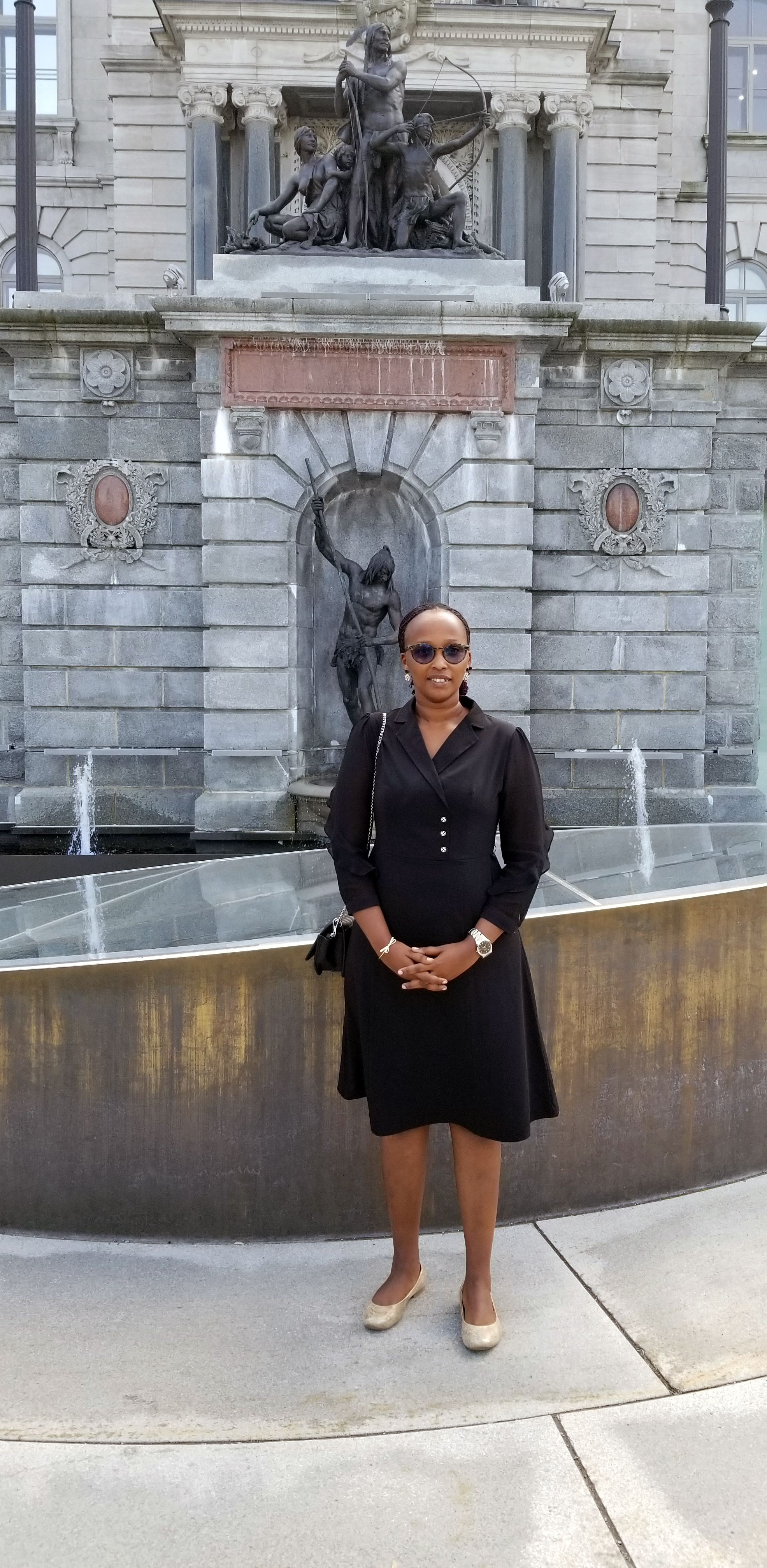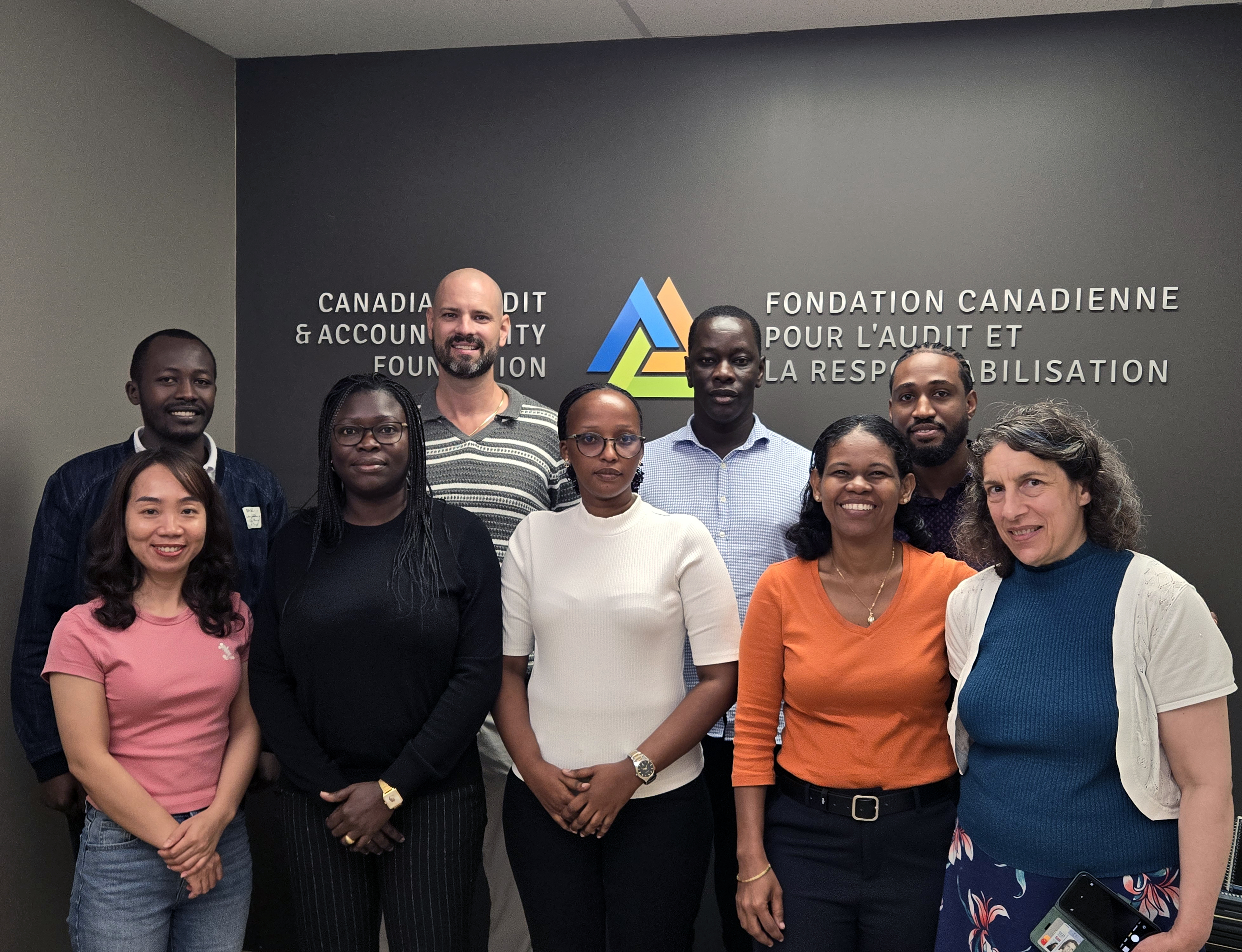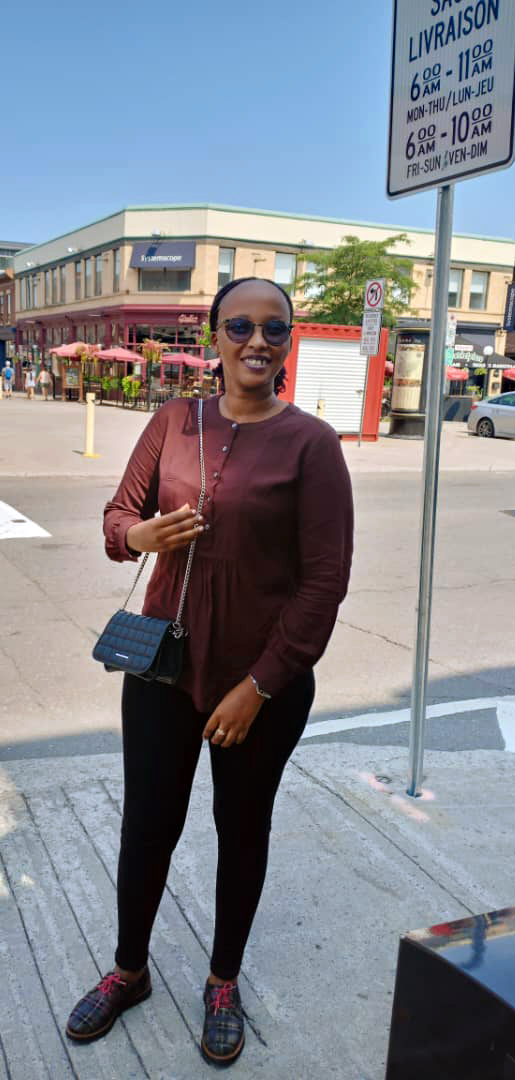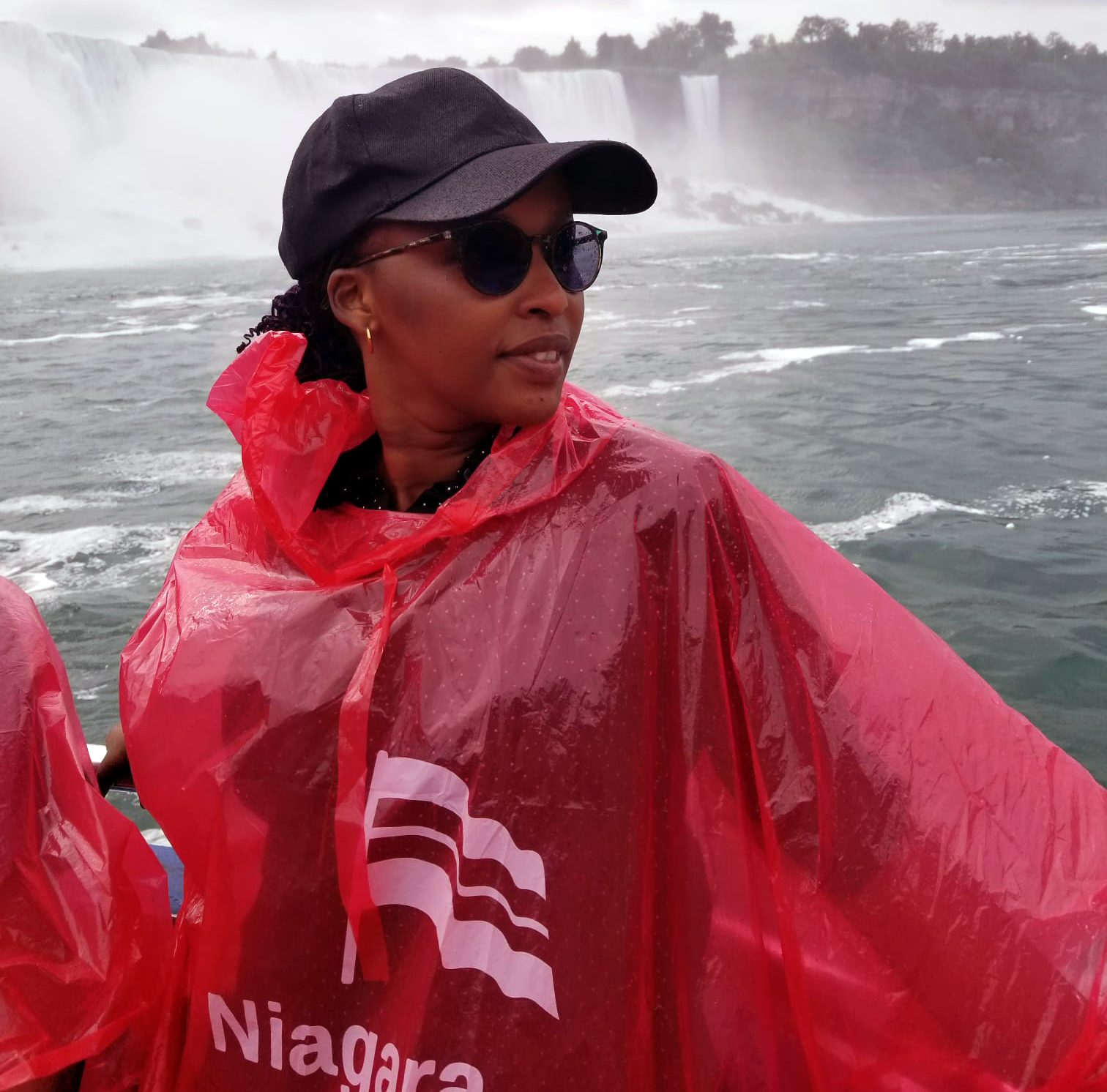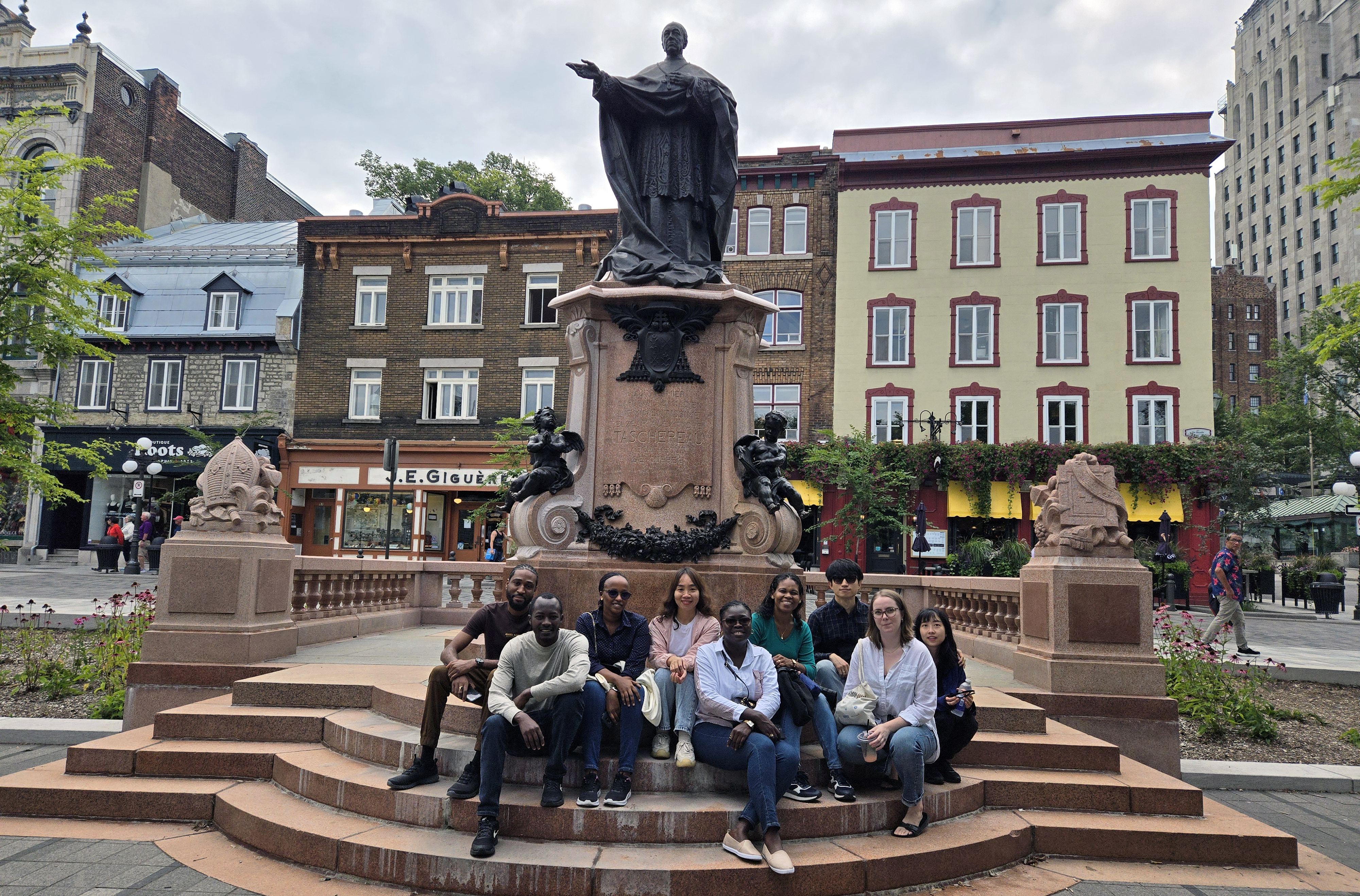

Aminah NyirahirwaOffice of the Auditor General of State Finances of Rwanda Senior Performance Auditor |
My FellowshipMy Canadian placement:Office of the Auditor General (OAG) of Canada My Canadian audit team:I was part of a team auditing the Canada-wide Early Learning Child Care System, led by Principal Gabriel Lombard. My most valuable learning:I learned about effective audit planning based on thorough risk assessment. I also learned that effective communication is key for successful audits, including team management and engaging stakeholders at each stage of auditing. How my Canadian colleagues and mentors helped me:My Canadian colleagues and mentors provided invaluable guidance, sharing their expertise openhandedly and always encouraging questions and discussions. Through the knowledge and experiences that they shared I was able to comprehend different best practices that can be applied in varying contexts of audit work. Their supportive approach and feedback not only deepened my understanding of audit planning but also boosted my confidence to apply these insights in my own work. What I enjoyed most:What I enjoyed most was the mentorship and the collaborative environment within my host office, which fosters teamwork and open communication with Directors and team members and helped with gaining hands-on experience and invaluable insights into best auditing practices. The supportive guidance from my mentors and the opportunity to apply best practices were both empowering and deeply rewarding. Collaborating and interacting with individuals from different cultural and professional backgrounds with different perspectives broadened my own understanding. My audit plan:Private health facilities regulationI developed my audit plan with the guidance of my mentor at OAG Canada, Audit Director Ewa Jarzyna. The connection to my country’s development priorities:This audit of private health facilities regulation is in line with the social transformation pillar under the Rwanda National Strategy for Transformation, which is to enhance the demographic dividend through ensuring access to quality health for all. Regulating healthcare services provided by private health facilities promotes equitable access and supports the broader health system in sustainably improving health care services at all levels while contributing to higher quality, safer patient care and more sustainable healthcare infrastructure. The audit project also aligns with the country’s commitment towards achieving Sustainable Development Goal 3 (Target 3.8), that emphasizes the importance of strengthening health systems to deliver quality, accessible, and equitable healthcare services to achieve universal health coverage. As well, Rwanda’s Fourth Health Sector Strategic Plan aims to contribute to SDG 5, on gender equality, by eliminating gender barriers to providing and receiving essential health services. How CAAF and my host office helped:Through their feedback and the challenge sessions, CAAF and my host office played a crucial role in helping me develop and improve the audit objective and scope, audit questions, and focus areas for a strong audit plan that can be implementable. The comprehensive mentoring and targeted training sessions emphasized practical applications of auditing principles. Also, risk assessment and mapping stakeholders helped to identify risk areas for the focus of the audit project. The challenge sessions, which provided real-world scenarios, benchmarks and gender lens application, helped refine the audit plan. The skills and knowledge I improved by developing this plan:The process of developing this audit plan helped me to improve my skills in critical thinking and identification of project risks and demonstrated the significance of appropriate documentation in audits. Also, working on audit plan helped me to improve my understanding of SDGs and gender lens application. My future impact:The new knowledge I’m most excited to share with my colleagues:Continuous engagement, collaboration and communication with key stakeholders throughout the audit phases is a gamechanger in achieving audit success. Conducting interviews with key stakeholders in the understanding subject matter phase of the audit helps identify risk areas where to hone your audit focus. Proper and detailed documentation of the audit, with working papers well cross referenced from the start, is essential for gathering knowledge and understanding the subject matter for scoping and focusing the audit towards achieving your goals. The difference I hope to make:I hope to conduct performance audits that are SDG-focused and include a gender equality lens or engage in audits that bring out these aspects and consider whether entities include these lenses as part of their organisation’s plans and strategies. This should be assessed and considered at an early stage of audit planning and throughout the course of the audit. With such inclusions, audits will have a greater impact on the country’s development and may even gain international attention. My professional goals:Upon my return to my home country, I will complete my audit project. I will also share the knowledge and skills learned with my colleagues through training and by improving and updating templates and working papers used in performance audits. In the long term, conducting performance audits that include a gender lens and the SDGs are certain to contribute to creating the environment for sustainable development. |
||||
My Experience |
|||||
The most Canadian thing I did was…Using maple syrup in place of honey and sugar, kayaking at a cottage and watching a baseball game. My favourite cultural experience in Canada was…Visiting the Museum of History and Museum of Nature and seeing the autum transformation of leaves from green to red, orange and yellow. |
|
||||



 */
*/
